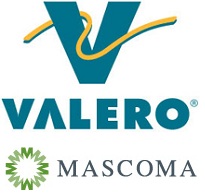![]() Cobalt Technologies has added Andrew Meyer to its executive team. He will be serving as the company’s Senior Vice President of Business Development and he will be responsible for leading Cobalt’s effort to commercialize biobutanol. Most recently, he was with Amyris where he was director of Supply and Distribution where he developed the company’s fuel marketing program. He has also worked for Chevron and BP.
Cobalt Technologies has added Andrew Meyer to its executive team. He will be serving as the company’s Senior Vice President of Business Development and he will be responsible for leading Cobalt’s effort to commercialize biobutanol. Most recently, he was with Amyris where he was director of Supply and Distribution where he developed the company’s fuel marketing program. He has also worked for Chevron and BP.
“Cobalt has had a momentous year – opening a pilot plant, announcing scientific breakthroughs with beetle-kill wood, partnering with the Navy to make jet fuel –and I’m excited to be part of its executive team,” said Meyer. “My goal is to put in place the value chain to drive our top line growth, enabling the company to realize the tremendous bottom line opportunity created by the technology.
CEO Rick Wilson said of the new team member, “Our current focus is on forming the partnerships to execute our first commercial facilities globally. Andy is a fantastic choice for leading our commercialization efforts, given his experience building value for shareholders in a startup environment at Amryis, and for his deep understanding of both the fuels and chemicals markets.”
![]() Ethanol fermentation company Lallemand Ethanol Technology also announced an addition to its team today with the appointment of Prof. Graeme Walker as the new Scientific Director of the Ethanol Technology Institute. He replaces the retiring Dr. Mike Ingledew. Dr. Walker is currently Professor of Zymology and director of the Abertay Yeast Research Group (Dundee, Scotland) and will continue in this capacity. In his career, he he has already published more than 100 articles in journals, authored several books, and keynoted several conferences. He is the author of the textbook: Yeast Physiology and Biotechnology, published by J. Wiley (1998) and Bioethanol, published by Ventus (2010).
Ethanol fermentation company Lallemand Ethanol Technology also announced an addition to its team today with the appointment of Prof. Graeme Walker as the new Scientific Director of the Ethanol Technology Institute. He replaces the retiring Dr. Mike Ingledew. Dr. Walker is currently Professor of Zymology and director of the Abertay Yeast Research Group (Dundee, Scotland) and will continue in this capacity. In his career, he he has already published more than 100 articles in journals, authored several books, and keynoted several conferences. He is the author of the textbook: Yeast Physiology and Biotechnology, published by J. Wiley (1998) and Bioethanol, published by Ventus (2010).
“Lallemand Ethanol Technology is very excited to have someone of the caliber and experience of Dr. Walker joining the Ethanol Technology Institute.” says Bill Nankervis, General Manager. “Graeme, not unlike his predecessor Dr. Mike Ingledew, is one of those unique individuals who are recognized leading academics, yet are able to bridge the gap that so often exists between academia and practical application of the theory in industrial situations. We look forward to working with Graeme to continue the excellence of The Alcohol School and the other programs and publications the Ethanol Technology Institute is known for around the world.”




 The
The  A webinar on messaging for the biofuels industry will be held Wednesday, January 26 from 2:00 – 3:00 PM central time.
A webinar on messaging for the biofuels industry will be held Wednesday, January 26 from 2:00 – 3:00 PM central time. 


